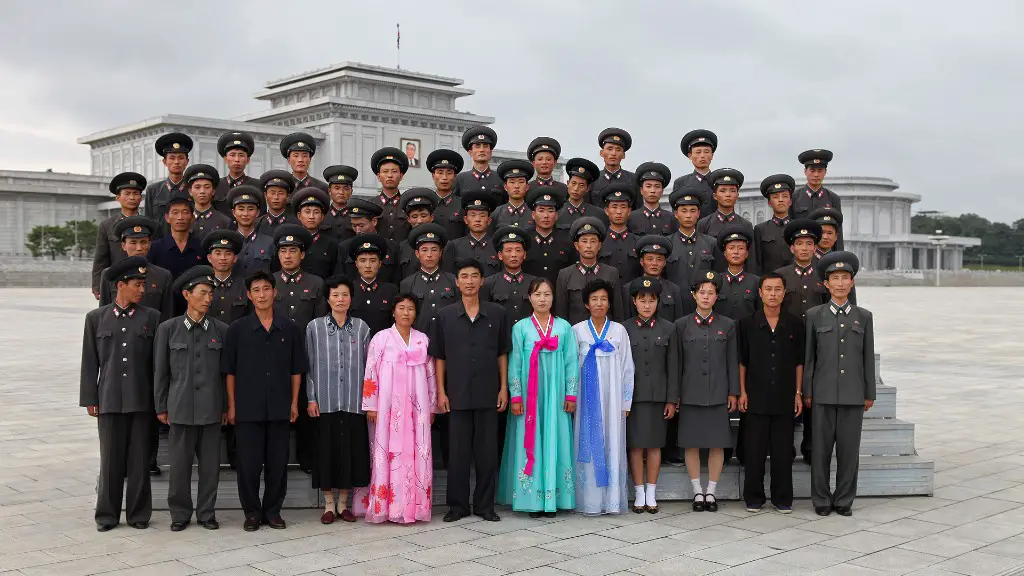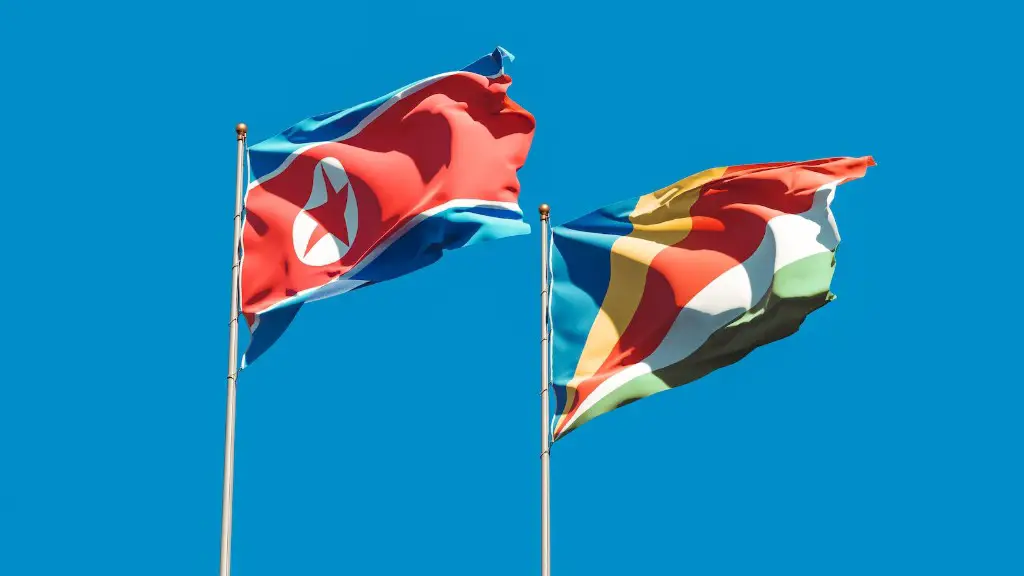What Life In North Korea Is Really Like
Life in North Korea can seem like a distant fantasy to some, yet to its citizens, it is a harsh reality. It is a country shrouded in mystery, remaining in political and economic uncertainty for decades. Life in North Korea is known for its authoritarian rule, scarce resources, and the notorious human rights violations. To delve into the daily lives of North Koreans, one must look into the political, economic, and social situations existing in the nation.
The state-controlled media of North Korea casts a heavy shadow on the reality of the conditions of life there. As one of the few countries with a complete information blockade, citizens are completely cut-off from the rest of the world. All media outlets are monitored, heavily censored, and restricted to only reporting propaganda news from the government. This “monolithic” press coverage prevents citizens from accessing a wide range of information, effectively erasing any possibility of independent thought.
North Korea has experienced extreme economic hardships throughout the past few decades that have taken a heavy toll on the lives of citizens. With a lack of natural resources, and major economic sanctions imposed by the United Nations, the economy of the country is extremely fragile. In addition, the costly militarization of the nation makes economic resources even scarcer. Such constraints have had a tremendous impact on the food supply, healthcare system, education and employment. As a result, many citizens are living in poverty, and are unable to access basic necessities.
The political system of North Korea is another heavy burden on its citizens. With a declared state of war between North and South Korea since the Korean War, the country remains in a heightened state of alert. This has resulted in the implementation of severe militarized policies that restrict the freedoms of citizens. Additionally, with the country under one-party rule, centralization and censorship of opinions has become normal. Dissenters are often met with harsh repression tactics, creating an atmosphere of fear amongst the population.
The social lives of North Koreans are drastically different from those of most people in the world. All aspects of life are heavily restricted and monitored, including everyday activities like gathering in large groups and expressing emotions. As a result, citizens are unable to form meaningful relationships outside of their immediate family and are limited in their ability to express themselves. Additionally, due to the lack of access to news and the dissemination of propaganda, people may be prone to a false perception of the current situation.
Living Conditions
Living conditions for the North Korean public are very poor, with most people living in overcrowded and substandard housing. Healthcare is limited and often inadequate, with many families having to rely on traditional remedies due to lack of access to modern medical treatments. Sanitation and hygiene standards are extremely low and access to clean water limited. Education opportunities are extremely limited and most children do not receive an adequate educational experience.
Human Rights Violations
North Korea is one of the worst violators of human rights in modern history with a wide array of gross injustices committed against its population. Reports have indicated that the government is responsible for arbitrary detentions, torture, and other cruel, inhumane, or degrading treatment of individuals. Extensive surveillance of ordinary citizens by state security forces creates a pervasive atmosphere of fear and intimidation. Additionally, millions of North Koreans are being held in prison camps where they suffer from hard labor and starvation.
Further Restrictions
North Koreans are subject to further restrictions on their daily lives. There is a prohibition on religious worship and freedom of expression, with individuals unable to express critical views of the state and government. Nominal freedom of movement is also heavily restricted with few people ever leaving the country and most North Koreans having to obtain permission to travel even within the country.
Cultural Identity
Due to the extensive restrictions on communication, North Koreans have slowly begun to lose their traditional cultural identity. Western influences are discouraged and heavily censored, while citizens become more and more detached from the world. Unique cultural traditions are slowly becoming forgotten and are replaced by a homogenous set of values, enforced by the state.
Restrictions on Media
North Korea’s information blockade has been severe, with citizens bitterly cut-off from the rest of the world. All media, including television, movies and music, are heavily censored and filtered, removing any material outside the scope of the state-approved propaganda. Further, independent outlets, whether in print or digital form, are strictly prohibited and access to the internet is a rarity for citizens.
Pressure From Foreign Countries
Despite ongoing international pressure for the government to reconsider its policies and practices, the situation for North Koreans remains dire. The international community, including foreign countries and organizations, has put forth a series of sanctions in a bid to bring about change, yet progress has been slow and limited. Political negotiations between North Korea and other countries have had no clear result, further complicating the situation.
Effects of Sanctions
The restrictions, imposed by foreign countries and enforced through economic sanctions, have had disastrous effects on the North Korean public. The nation’s economy has further receded with economic sanctions damaging the already fragile system. Further, the restrictions have increased levels of poverty and suffering for citizens, with food shortages becoming more rampant and living standards steadily decreasing.
International Aid
Despite heavy restrictions and economic sanctions, the international community has provided some forms of humanitarian aid to North Korea. Organizations and foreign governments have extended assistance in the form of food, medical supplies and building materials, although with limited and carefully monitored distribution. However, the effectiveness of these measures remain to be seen, and the true extent of their reach is difficult to gauge.
Conclusion
The reality of life in North Korea is far from the romanticized version portrayed in films and books. It is a country in political, social and economic turmoil, with severe restrictions placed on its citizens and international pressure to reform or face further sanctions. While damage has been inflicted, some progress has been made with the international community providing aid wherever possible. Furthermore, citizens, from within and from outside the country, strive to create a better future for themselves and those around them.


